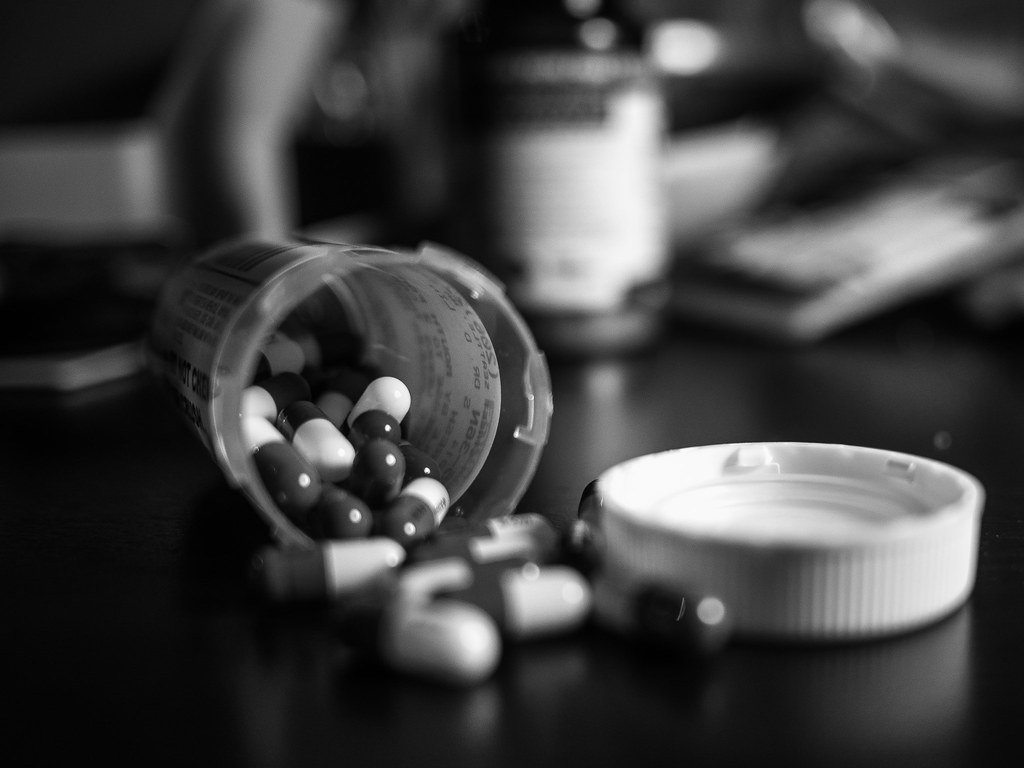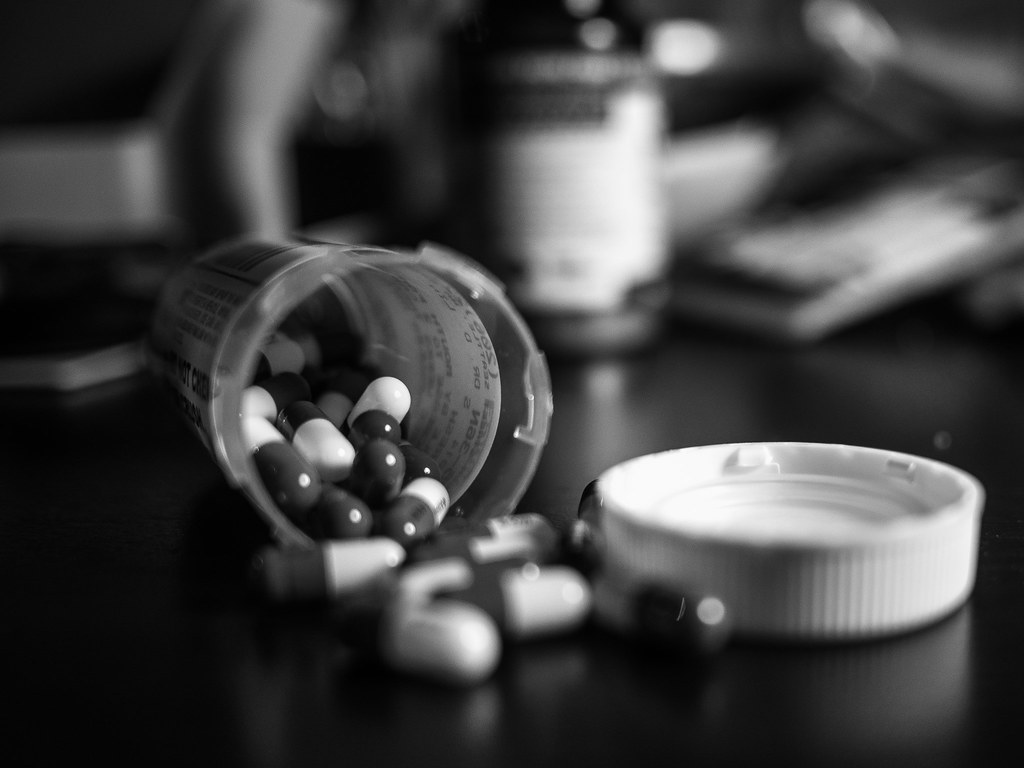
Opioids are spilled from their container to represent abuse.
Opioids can be a subscribed medication like OxyContin or illegal like heroin.
According to the Blue Cross Blue Shield of ND Caring Foundation, opioid addiction often starts when a patient is prescribed medication from a doctor. When taken properly the medication can be a highly effective pain killer, but when abused opioids can be addictive.
“Under normal circumstances, dopamine is released in response to pleasurable experiences, happy thoughts, exercise, and other positive social interactions. This natural release of dopamine that comes through healthy interpersonal relationships and other pleasurable experiences, is a beautiful biological phenomenon among humans; but it takes time, effort, and the degree of natural euphoria that can be attained naturally has a biological limit,” said Dr. Mark Strand, NDSU Pharmacy Practice and Public Health Department Professor. “Opioids act on the same pathway, so they become a type of “artificial reward,” giving feelings of satisfaction and relaxation in unnatural ways. The problem is that opioids create this effect instantaneously, easily, and with no ceiling effect.
According to the U.S. department of health and human services, 70,630 people died from drug overdose in 2019. According to Dr. Strand the addiction of opioids has a lot to do with the drugs having no ceiling effect
In North Dakota, around half of the drug overdoses involved opioids in 2018, according to the National Institute on Drug Abuse.
“[Opioids are dangerous] because opioids have no ceiling effect, the more one takes the greater the effect. And while it is causing euphoria in the user, as a depressant, it is also slowing the autonomic nervous system, in this case breathing,” Dr. Strand said. “At a high enough level, breathing stops, and eventually the person dies. This is what is meant by an opioid overdose, which can be fatal if not reversed immediately through an opioid antagonist such as Naloxone (Narcan).
Naloxone, according to the National Institute on Drug Abuse, attaches to opioid receptors to reverse and block the effects of other opioids.
Naloxone is intended to stop overdoses and allow the person to have time to seek medical help. According to ND law, any individual is protected from criminal and civil liability for administering Naloxone to a suspected drug overdose.
In North Dakota a physician or local pharmacist can write a prescription to anyone for naloxone, also known as Narcan.
Overdoses in North Dakota have been increasing with one of the main substances being opioids. The state government is working towards prevention and treatment, prevention.nd.gov is a source dedicated to sharing information, treatment, and other resources.
The site encourages proper storage and disposal of opioids along with a variety of resources for addicts. Dr. Strand also supports the proper disposal of medications and encourages people to reach out to those struggling with addiction.
“If you know someone struggling with substance use disorders, such as alcohol misuse, or misuse of medications such as opioids (such as Vicodin, Percocet, Oxymorphone) or stimulants (such as Adderall or Ritalin), reach out to that person and see if they are willing to talk,” Dr. Strand said. “If you notice they may not be coping well, chances are, they know it too. Your empathetic, and respectful conversation with them may be just what is needed to help them begin to reevaluate their life, and start on the road to a healthier life.”
Addiction to opioids is treatable. Resources can be found on the ND governments prevention site at https://www.behavioralhealth.nd.gov/addiction/service-locator
